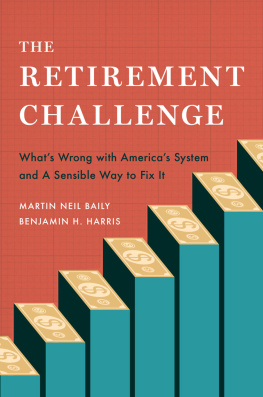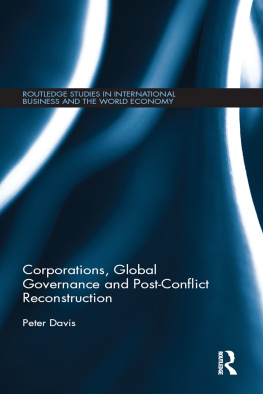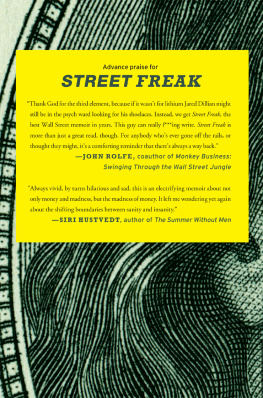THE VANISHING AMERICAN CORPORATION
THE VANISHING AMERICAN CORPORATION
NAVIGATING THE HAZARDS OF A NEW ECONOMY
Gerald F. Davis

The Vanishing American Corporation Copyright 2016 by Gerald F. Davis
All rights reserved. No part of this publication may be reproduced, distributed, or transmitted in any form or by any means, including photocopying, recording, or other electronic or mechanical methods, without the prior written permission of the publisher, except in the case of brief quotations embodied in critical reviews and certain other noncommercial uses permitted by copyright law. For permission requests, write to the publisher, addressed Attention: Permissions Coordinator, at the address below.
|
|---|

| Berrett-Koehler Publishers, Inc.
1333 Broadway, Suite 1000
Oakland, CA 94612-1921
Tel: (510) 817-2277, Fax: (510) 817-2278
www.bkconnection.com |
Ordering information for print editions
Quantity sales. Special discounts are available on quantity purchases by corporations, associations, and others. For details, contact the Special Sales Department at the Berrett-Koehler address above.
Individual sales. Berrett-Koehler publications are available through most bookstores. They can also be ordered directly from Berrett-Koehler: Tel: (800) 929-2929; Fax: (802) 864-7626; www.bkconnection.com
Orders for college textbook/course adoption use. Please contact Berrett-Koehler: Tel: (800) 929-2929; Fax: (802) 864-7626.
Orders by U.S. trade bookstores and wholesalers. Please contact Ingram Publisher Services, Tel: (800) 509-4887; Fax: (800) 838-1149; E-mail: customer.service@ingrampublisherservices.com; or visit www.ingrampublisherservices.com/ Ordering for details about electronic ordering.
Berrett-Koehler and the BK logo are registered trademarks of Berrett-Koehler Publishers, Inc.
First Edition
Hardcover print edition ISBN 978-1-62656-279-0
PDF e-book ISBN 978-1-62656-280-6
IDPF e-book ISBN 978-1-62656-281-3
2016-1
Book production and design: Seventeenth Street Studios Copyeditor: Laurie Dunne
Indexer: Richard Evans
Cover designer: Seventeenth Street Studios Illustration: Valerie Winemiller, Seventeenth Street Studios Author Photo: Ross School of Business
TO BEN AND GRACE , as they join the new Powerball economy
CONTENTS
PART I
THE CORPORATE CENTURY IN AMERICA
PART II
WHY THE AMERICAN CORPORATION IS DISAPPEARING
PART III
CONSEQUENCES OF CORPORATE COLLAPSE
PART IV
NOW WHAT?
PREFACE
W HY WOULD ANYONE want to write a gloomy book about the economy? And who would want to read it?
As a business professor who sees a lot of examples, I can attest that the world does not need another dull and jargon-filled book about business. But my motivation for writing this book was more personal. I wanted to give some advice to kids heading off into the world, including my own. Yet I was stumped.
When I headed to college, the options were clear. If you studied something practical, like engineering or business, you could get a corporate job when you finished school. If you studied something frivolous like philosophy, as I did, you could go to law school. And if you ran out of money and dropped out, there was always the chance of getting a union job on the assembly line.
That was in the early 1980s. In the years since then, we have all learned about the death of the corporate career. The company would not take care of you; you had to navigate from job to job and company to company, sometimes shifting laterally, but over the long run moving ahead. Today, even the job is endangered. Kids graduating from college might find themselves juggling an unpaid internship with a part-time job as a dog sitter and an intermittent gig driving for Uber.
If you ever played the childrens game Chutes and Ladders, you have a pretty good idea of the economic landscape facing millennials today. A handful land at the right place at the right time and manage to move upmaybe even selling their app to Facebook and retiring before age 30. But the vast majority face a precarious labor market where one wrong step might send them down the chute to part-time purgatory, struggling to put together enough shifts to make their student loan payments. The factories havent been hiring for years, and law school only leads to a higher class of unemployment. Even the computer literate working for brand-name corporations find that their jobs can be done more cheaply offshore (sometimes after they train their own replacements).
At the same time, the American corporation has been undergoing dramatic and puzzling changes. The shift from careers to jobs to tasks corresponds to a change in the shape of the corporate economy. Corporate careers only make sense when you have corporations that last a long time. But the gales of creative destruction beloved by business writers seem to be a lot heavier on the destruction than on the creation. The most venerable names in the corporate economy were going bankrupt (General Motors, Chrysler, Eastman Kodak), morphing into new industries (Westinghouse, Woolworth), splitting into component parts (Alcoa, Hewlett-Packard, Time Warner), or disappearing entirely (Bethlehem Steel, Lehman Brothers, Borders, Circuit City, and many others). The number of American companies listed on the stock market dropped by more than half between 1997 and 2012. Moreover, new entrants like Zynga and Zillow and Zulily start small and never grow big. By relying on contractors rather than hiring permanent employees in bulk, the newest corporations seem destined to remain tiny.
The new businesses in the sharing economy have dispensed with employment almost entirely. At the end of 2014 Uber had over 160,000 driver-partners in the United States but only about 2,000 actual employees. Similar figures hold for Airbnb and other sharing firms. They are not manufacturers or service providers but platforms, out to disrupt traditional industries such as taxis, hotels, and even medicine. In school I was often threatened with suspension for being disruptive. Now being disruptive is an essential virtue for any new business plan.
These things are connected.
New technologies enable new ways of doing business and new forms of organization. New ways of doing business change the economic landscape and the prospects that individuals and families face. In the 20th century, the American economy was dominated by major corporations. In the 21st, that will no longer be true. The old maps no longer work for our emerging economy, and the old remedies no longer fix current problems. The steam engine allowed factories to operate anywhere that could obtain coal, and drove the first industrial revolution. It gave us the steamship, the locomotive, and more globalized markets, as well as the dark Satanic mills, as William Blake described them, and the urban bedlam of Dickens. The mass production methods that shrank the cost of the Model T spread to all realms of industrial society over the 20th century, from how children were educated to how war was conducted. They gave us the modern corporation, the modern labor movement, and the American way of life. The Web and the smartphone allow pervasive markets and spontaneous collaborations at minimal cost. They make institutions like the modern corporation increasingly unsustainable. What comes next is up to us.
Next page









